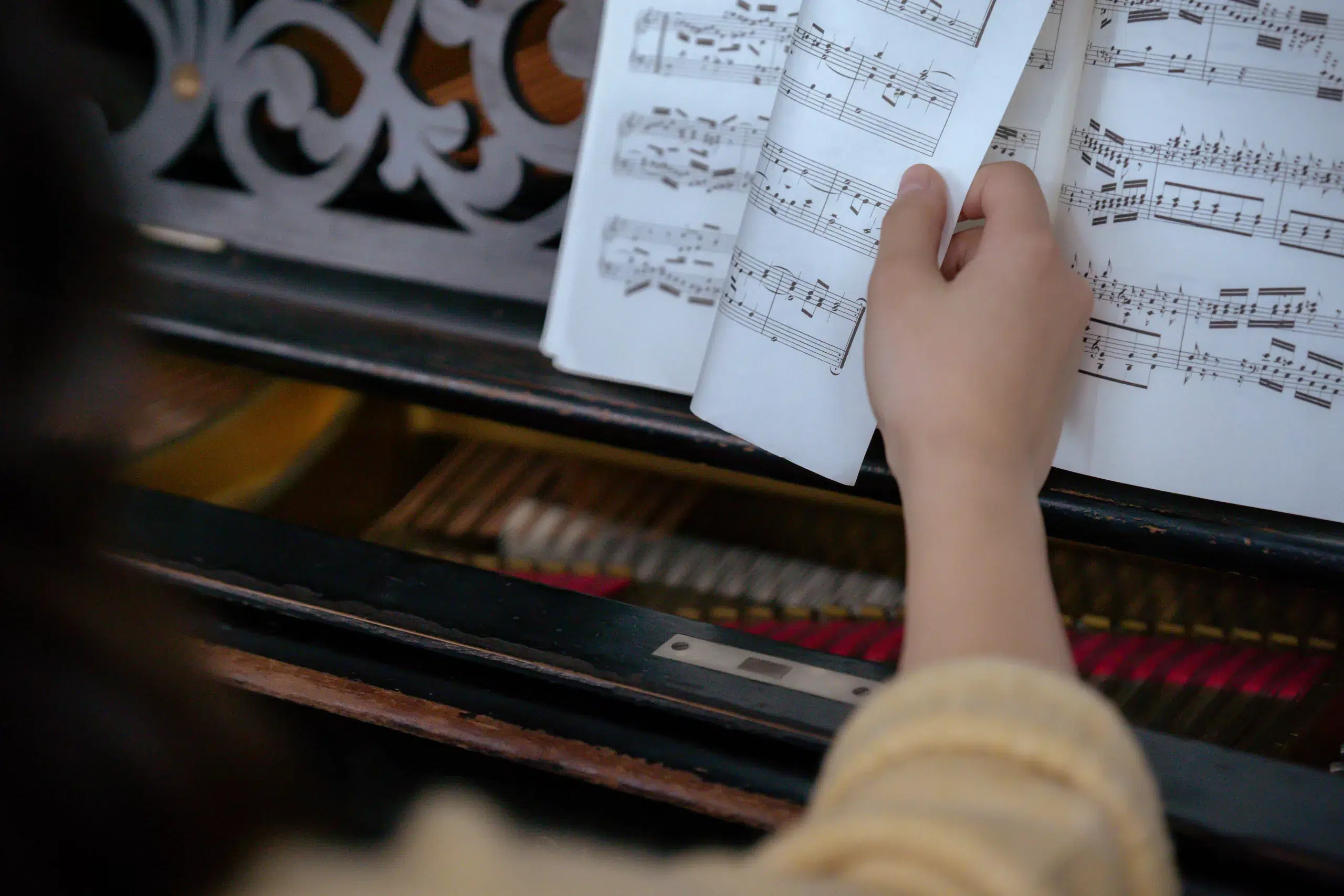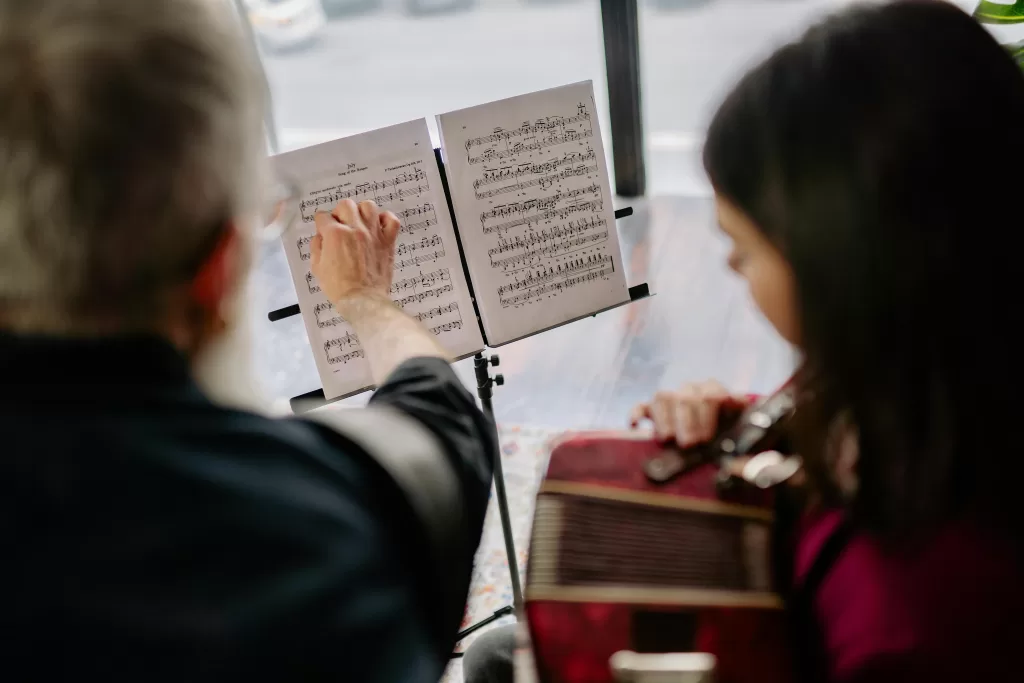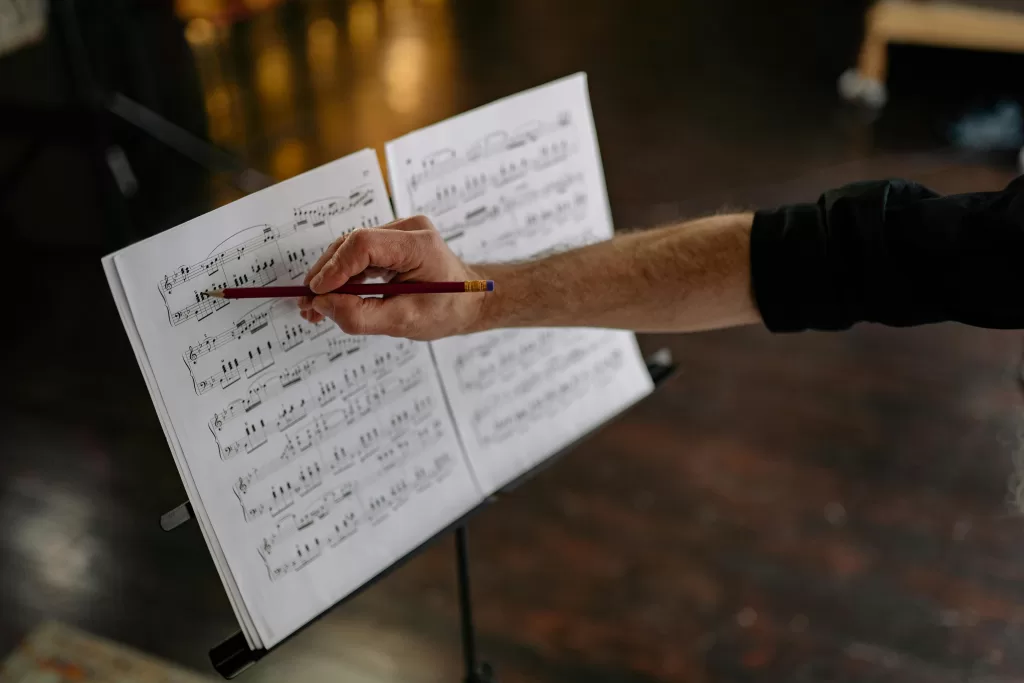Reading time: 5 minutes |
The listening component of GCSE Music is designed to assess a student’s understanding and appreciation of music. It requires students to actively engage with and analyse musical excerpts, and demonstrate their knowledge of musical styles, periods, and cultural contexts. This articles says essential tips to succeed in GCSE music listening.

Key Elements of the GCSE Music Listening Component
Musical Analysis:
This is key to the GCSE listening component. Students must be able to identify and describe various musical elements, including:
- Melody: Is the melodic shape conjunct or disjunct? Does it feature another particular devices, such as imitation, canon, or call and response? For popular music, does it also feature a lead singer and the backing chorus?
- Rhythm: This refers to the pattern of beats and accents within the music. Is there a funeral march rhythm (usually containing some dotted rhythm)? Or does feature a particular dance rhythm, like the 3+3+2 in a tango? What about the rhythmic devices of augmentation and diminution?
- Harmony: You should be able to analyse chords and chord progressions throughout a piece. This includes recognising major and minor chords, as well as some sevenths chords (like the ii7 and V7). Is the harmony mostly diatonic too, or does it feature some chromatic passages?
- Texture: This involves the interplay of different musical lines or layers. For classical muisc, this often mean monophony, homophony, and polyphony. In some traditional ethnic music, like Chinese and Japanese music, the textures are often heterophonic.
- Form: Understanding the overall structure or organisation of a piece is key. You should be able to identify common forms such as sonata, rondo, and binary. Knowledge of tonality is especially useful here as musical forms in the common-practice period are often signposted by different key areas.
Style and Period:
Recognising and discussing different musical styles (e.g., classical, jazz, pop, rock) and historical periods (e.g., Baroque, Classical, Romantic, 20th Century) is essential for contextual understanding. Students should know the characteristics that define each style and how they evolved over time. There is often a lot of information in your textbook (and I’d say not everything matters!), so it is important that you find a way to sift through it efficiently and turn them into memorisable chunks.
Instruments and Ensembles:
A good grasp of the various instruments and ensembles used in different genres enhances your analytical skills. This includes understanding instrumental families (e.g., strings, brass, woodwinds, percussion) and their unique characteristics. Some genres often feature particular instruments; for example, in Rock music, the electric guitar is especially important; and in African music, the drums usually underpin the music with polyrhythmic textures.
Contextual Understanding:
Students are often required to consider the cultural, historical, or social context of the music. This can include the significance of a piece within its time period, the background of the composer, and the intended audience. For example, Latin American music is a fusion of many things: of Western classical music, African music, and other regional folk music such as Spanish music. Some topics they sing about relate to slavery (though often in a way that plantation owners wouldn’t understand), and sometimes they could be just about love and life.
Four Common Question Types
The listening paper divides into two main sections: unseen listening and set pieces. Most questions in the first section are shorter, whereas questions concerning the set pieces will contain both short and long questions. In any case, they are usually asked along these lines:
- Identification: Questions may ask students to identify specific musical elements, instruments, or styles. For example, “What instruments are featured in this excerpt?”
- Contextual Discussion: Students could be asked to discuss the historical or cultural significance of a piece. For instance, “How does this piece reflect the social issues of its time?”
- Dictation: Students could be asked to dictate a rhythmic patter or melody based on a track.
- Analysis: Students might be required to analyse the music, discussing its structure, harmony, melodic development, or other elements of music. An example question could be, “Describe the use of articulation and texture in this section.” This kind of question is also more frequently seen in the second section, i.e., related to your set pieces.
Preparation Strategies For GCSE Music Listening
- Active Listening: Regularly practice listening to a wide variety of music. Focus on different elements and how they interact. This can involve listening to recordings with a specific focus, such as identifying instruments or analysing rhythm.
- Musical Vocabulary: Build a strong vocabulary of musical terms to describe and analyse music accurately. Familiarity with terminology will enhance both written and verbal responses in exams.
- Style and Period Knowledge: Study various musical styles and historical periods to understand their characteristics and influences. Creating a timeline of significant developments in music can be a helpful visual aid too.
- Practice with Past Papers: Work through listening questions from previous GCSE Music exams. Familiarity with the format and types of questions will build confidence. My personal tip: look at the model answers too, it’s important to know what the examiners are looking for in your answers!
Some Extra Tips from Someone who Marks Student Papers for IGCSE Music… 🙂
- Take Notes: While listening, jot down key observations or impressions. This can help clarify thoughts and aid in recall during discussions or writing.
- Use Examples: When analysing music, refer to specific examples to support your answers. This practice strengthens arguments and demonstrates a deeper understanding.
- Consider the Whole: Analyse the music as a complete composition, rather than just focusing on individual elements. This holistic approach will show your greater appreciation for music.
- Manage Your Time: During exams, allocate time wisely to ensure that all questions are answered. In fact, there are often questions that don’t require you to listen, meaning you can always leave them for later. Practise timed exercises to develop this skill.
By actively engaging with music and developing your analytical skills, you can excel in the listening component of GCSE Music. If you’re looking for more personalised support, I offer tailored lessons designed to help you succeed in your studies. Feel free to reach out for more information!


